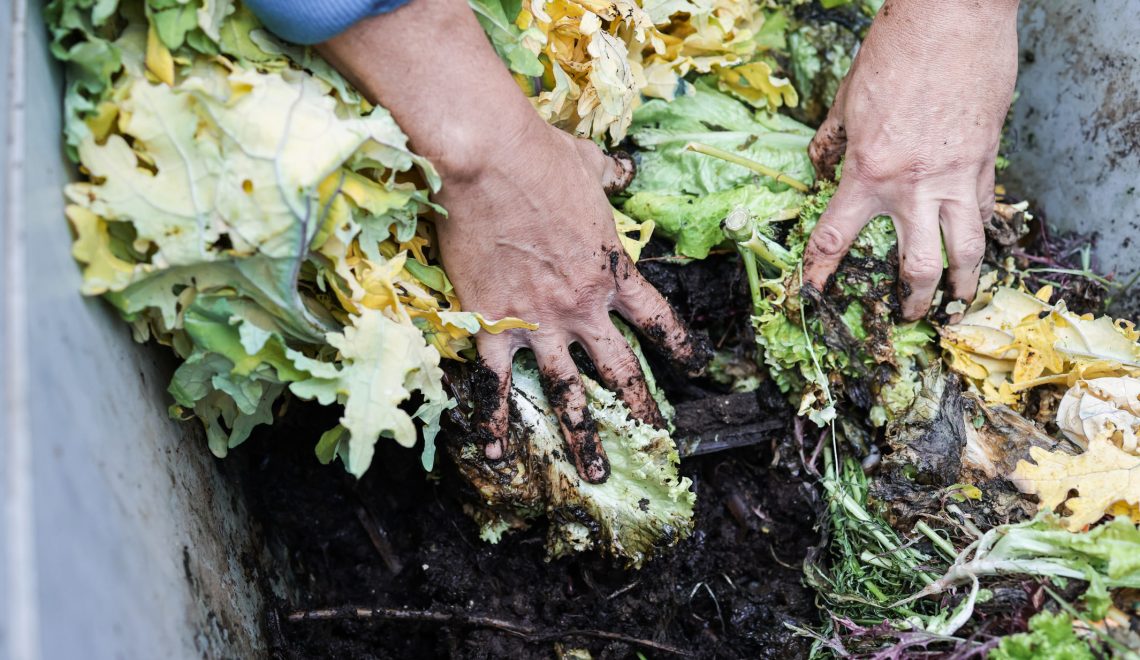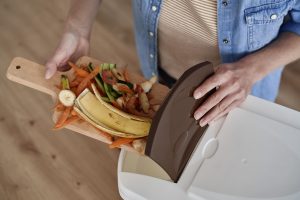
If you’ve been thinking about composting at home, then you are likely filled with many questions. It’s not necessarily something that you can just start on a whim. There is some preparation involved and you need to make sure that you are investing in the appropriate composting equipment for the size of your home and the amount of / type of waste that you create.
In this article, we’re going to answer questions like: How long does it take to make compost? How do you make compost decompose faster? And is an electric composter good for making compost? Read on to find out more!
How long does it take to make compost?
So, how long does it take to make compost? Generally speaking, compost can be created in as little as 6 to 8 weeks. However, it can in fact take a year or more depending on your setup.
Typically, the more effort you put into the composting process, the faster you will be able to get your compost ready for use.
Once the ingredients you’ve put in your composting container are a dark brown, with an earthy smell, then the process is complete.
If you’d prefer not to wait so long for your compost, then here’s how you can make compost decompose faster and speed up the process:
How do you make compost decompose faster?
Making compost decompose faster can be done in a number of different ways. If you are a beginner with composting, here are a number of tips that you can try:
- Add a layer of branches at the bottom of the pile: doing this traps air inside the compost pile and helps to drain excess water
- Add old soil or compost to the mix: With old soil and compost there is already existing bacteria to help speed up the process
- Use a bottle of hot water to kick-start the process: this may not work immediately but if you bury a steaming hot bottle of water into your mix it can increase the overall temperature of the pile and move the decomposition process along nicely
- Use a “compost duvet”: compost duvets are a sort of “winter jacket” that can help to provide insulation and maintain heat
- Turn your compost properly: turning compost introduces more oxygen to the mix (do so every day or two)
- Add material rich in nitrogen: add more “green” items which are rich in nitrogen to speed the process along
- Get the moisture ratio perfect: if the moisture ratio in your compost is around 61%, it can help to bring the temperature up
- Consider “compost activators”: chicken manure is one such compost activator that is brilliant at speeding up the decomposition process
- Add materials that are easily digestible: some materials compost faster than others. For example, wood and leaves can be quite slow to decompose, whereas grass clippings are much faster
- Reduce the material size before placing them in the pile: the larger the compost material the harder the bacteria have to work to break it down. Reduce its size before putting it in and it will help the process along
- Increase the overall volume of your compost pile: large compost heaps simply work more effectively than smaller ones
- Invest in insulated bins: compost bins with sufficient insulation will help with temperature control
- Add worms: as the compost pile begins to lower in the temperature you can add worms to the mix as they can help to remove pathogens

Is an electric composter good?
Is an electric composter good? If you have a limited amount of space, or indeed you do not create all that much in the way of waste, then an electric composter is a very worthwhile investment.
For example, if you live in an apartment block and do not have a garden, then having a large compost bin isn’t going to be realistic. However, a food waste decomposer machine can often be small enough to fit easily into your kitchen. Further to that, they are designed to eliminate odours so you won’t even notice that there is loads of food waste in your kitchen slowly decomposing over time.
Is an electric composter good for compost?
Is an electric composter good for making compost? The truth is, electric composters technically aren’t composters. Not in the traditional sense at least. You see, food recyclers actually break down food waste much faster than a composter using aeration and heat, similar to a regular compost pile, but using a different method.
In any case, the end-product is very similar in that it can be used to feed your plants and provide them with plenty of natural goodness!
Conclusion
We hope that this article has been helpful for you and that you now have a better idea as to whether you should invest in a traditional compost bin, or if an electric composter would be the better option for your home setup.
If you are still feeling a little bit confused, or you’d like to look at the various types of electric food waste composters available on the market, find a reputable manufacturer and supplier like Hass co for some additional insight.
In any case, we wish you the best of luck with your composting and would like to commend you on making a conscious effort to reduce your green waste and turn it into some natural fertilizer of your own!


